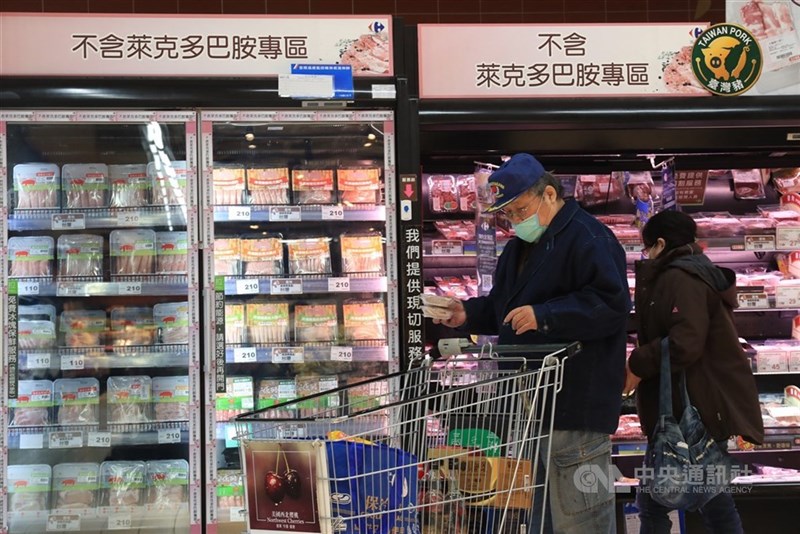
Taipei, May 6 (CNA) Traces of the controversial veterinary drug ractopamine have been detected in two batches of frozen pork knuckles imported from Australia, the Taiwan Food and Drug Administration (TFDA) said Tuesday.
The shipments, totaling 47.25 metric tons, were found to contain 0.002 parts per million (ppm) and 0.003 ppm of the substance respectively, below Taiwan's maximum residue limits.
The legal limits for ractopamine in pork are set at 0.01 ppm for pork meat, fat and other edible parts, and 0.04 ppm for organs like liver and kidneys.
These findings come just days after a shipment of imported pork, also from Australia, tested positive for ractopamine at Taiwan's border for the first time since restrictions on pork with ractopamine were lifted on Jan. 1, 2021.
The latest two batches were produced by the same manufacturer as the previous batch, but were imported by a different trading company, said TFDA Director-General Chiang Chih-kang (姜至剛).
The importer of the two pork shipments, Huahung International Trading Co., issued a statement Tuesday to apologize for importing pork with ractopamine residues and pledged stricter controls to prevent similar incidents from occurring in the future.
For beef, which has been allowed into Taiwan with minimal traces of ractopamine since 2012, a total of 249,609 batches of beef and beef offal have been tested at the border for ractopamine, with 2,493 testing positive for the substance.
Of those, only six contained excessive amounts of ractopamine and were destroyed or returned.
Both beef and pork imports are inspected with the same emphasis on food safety, with scientific analysis backing the requirements, Chiang said.
Ractopamine, which promotes muscle growth in animals, is allowed as a feed additive for pigs in 26 countries, including the United States, Canada, New Zealand, Australia, Japan and South Korea.
However, the European Union and China ban use of the substance, amid concerns that it has a negative impact on animal and human health.
- Business
August CPI below 2%, but low-income still pressured
09/07/2025 09:09 PM - Sports
All-time CPBL home run leader Ngayaw‧Ake' ends career with 305th homer
09/07/2025 08:38 PM - Society
Tropical Storm Tapah disrupts flights between Taiwan, HK, Macau
09/07/2025 08:19 PM - Culture
Taiwanese cinema in spotlight at Vancouver film festival
09/07/2025 07:28 PM - Society
Lunar eclipse to occur late Sunday to early Monday
09/07/2025 06:52 PM